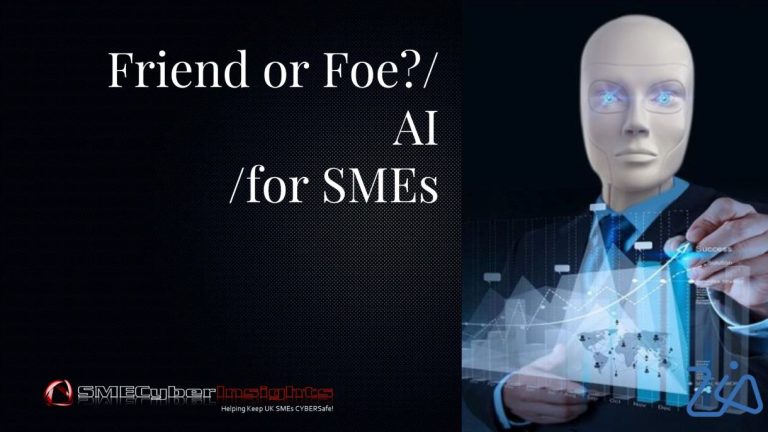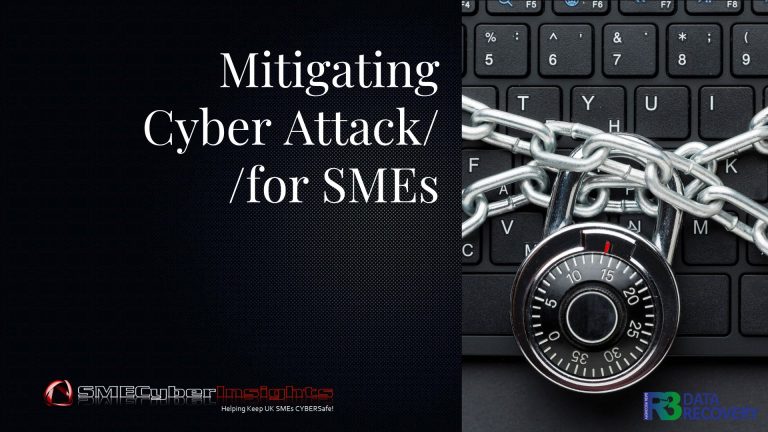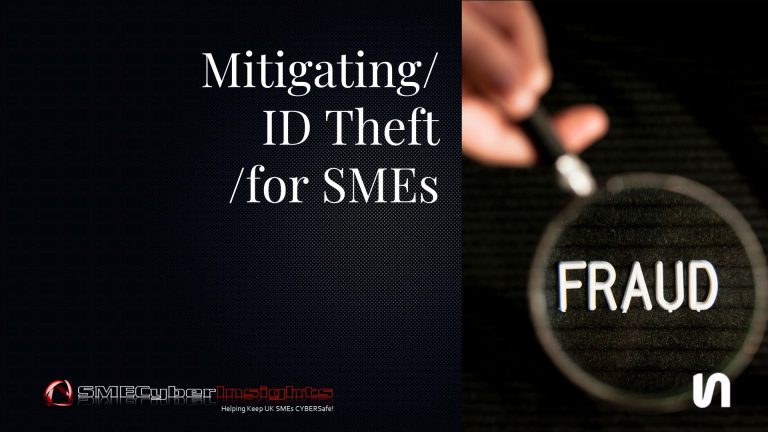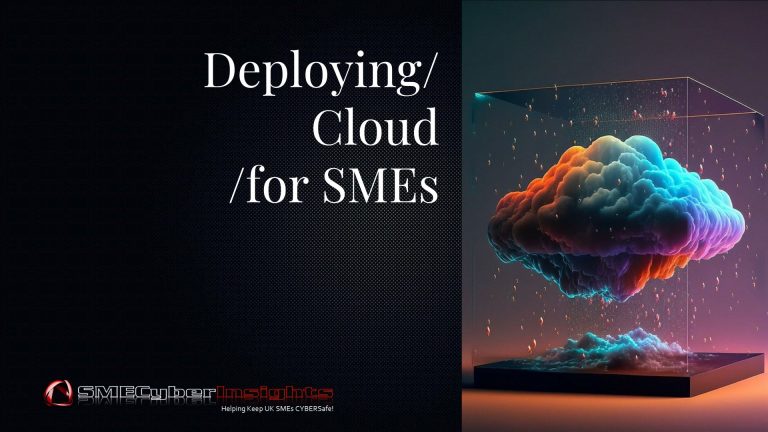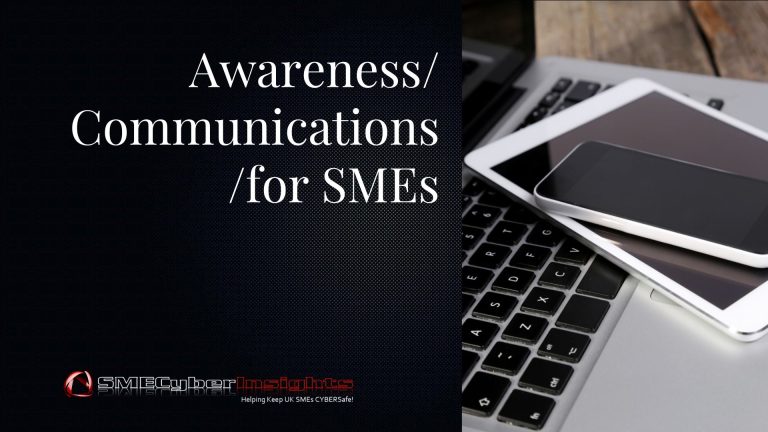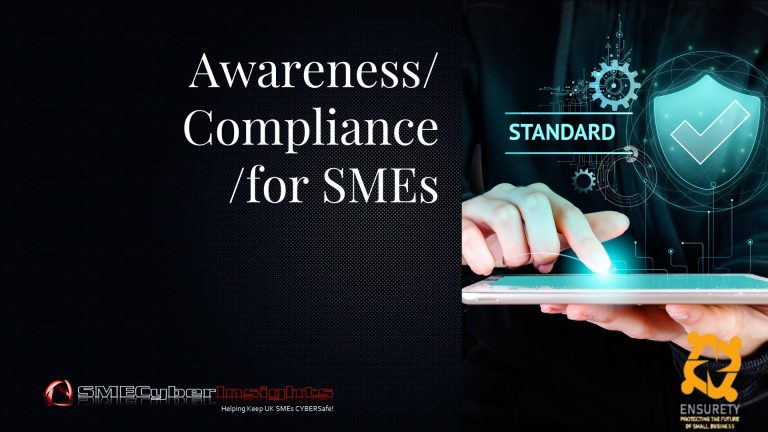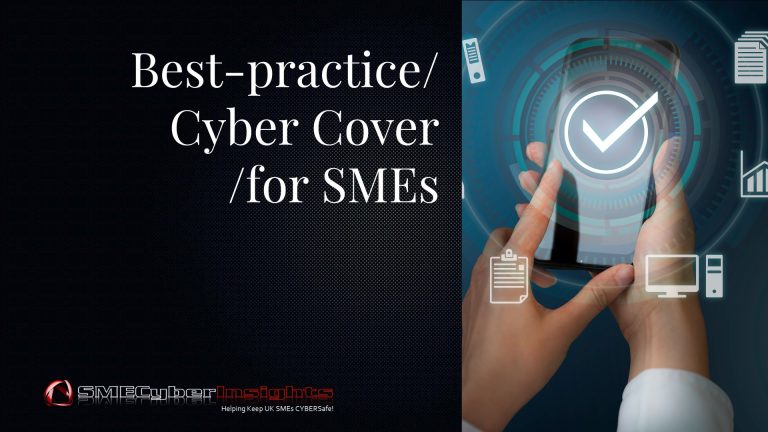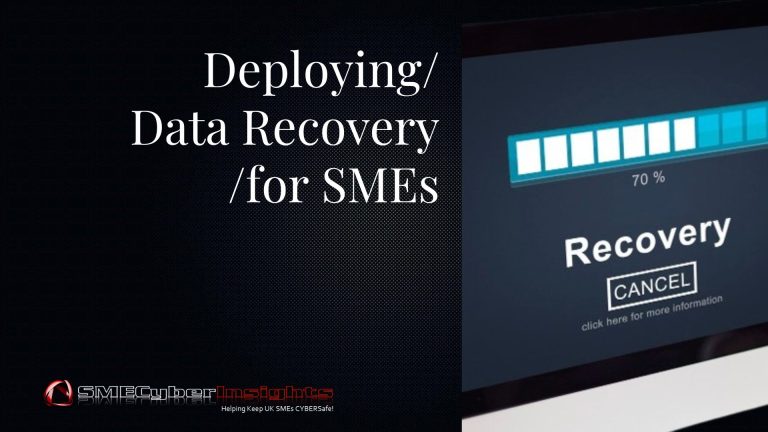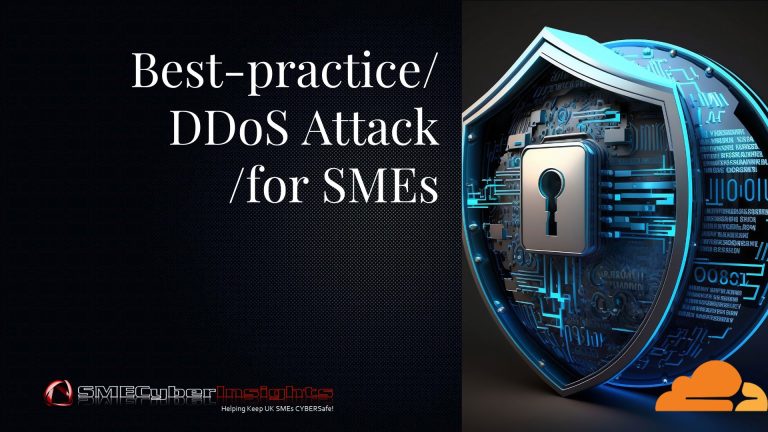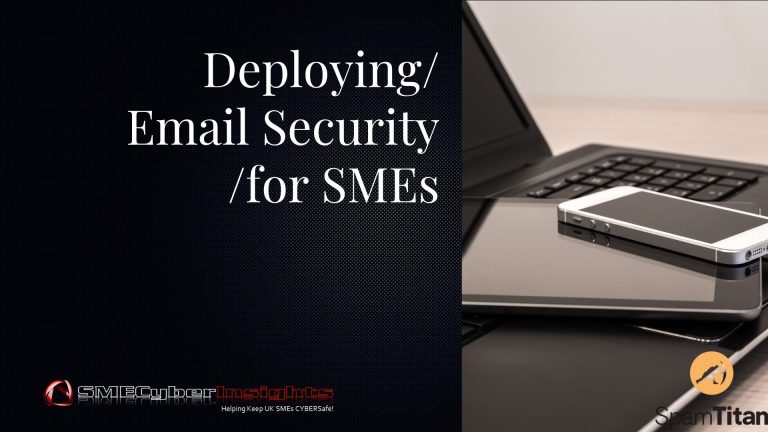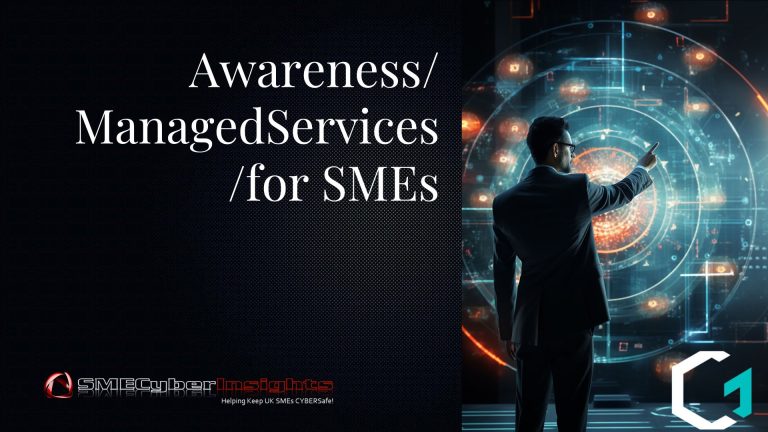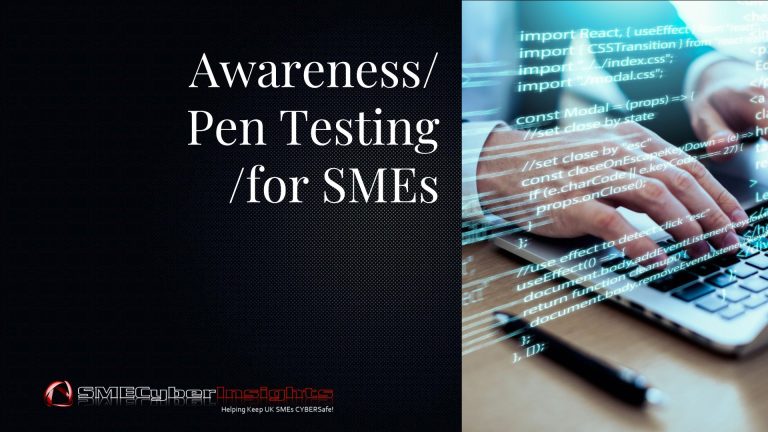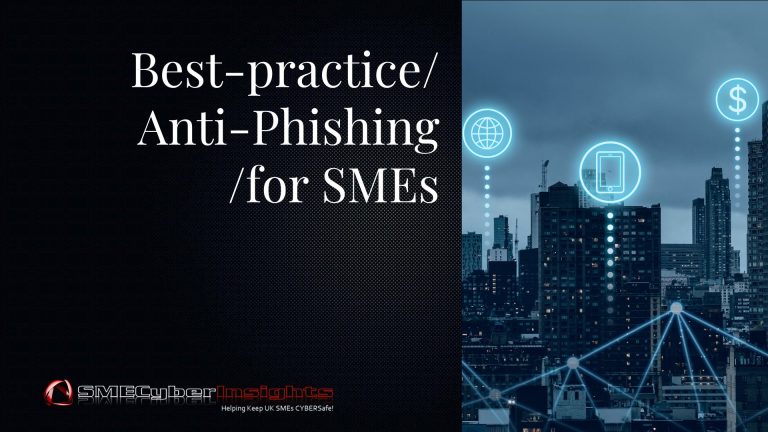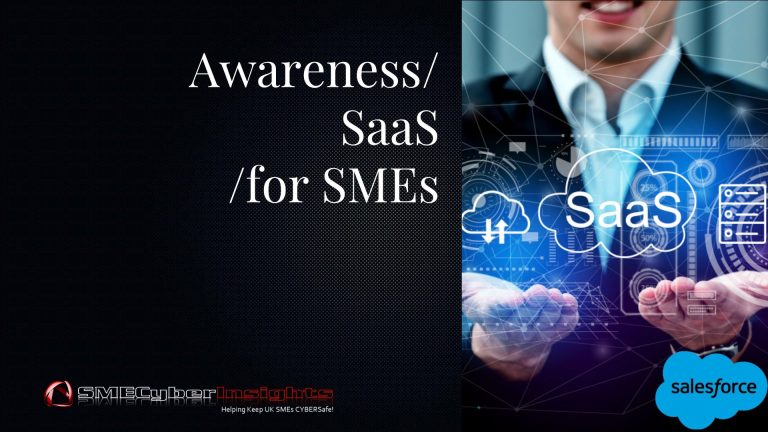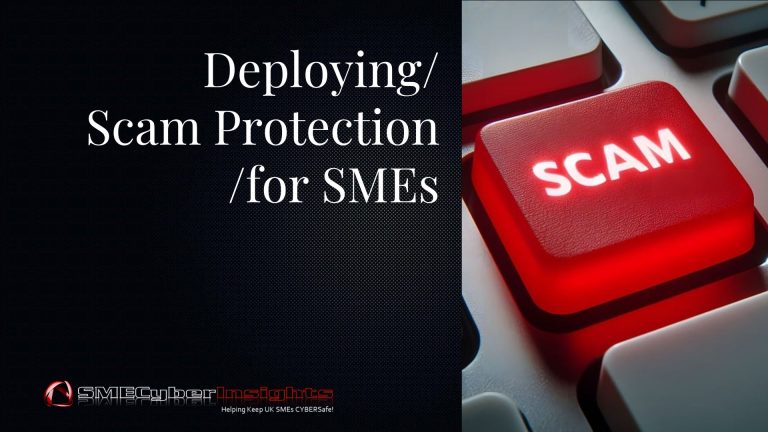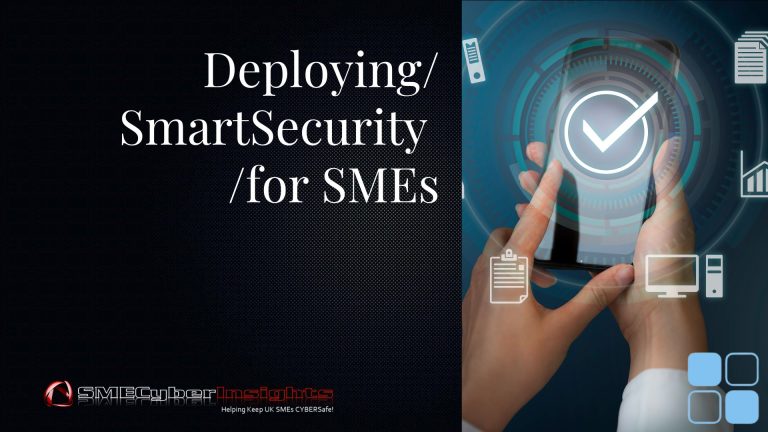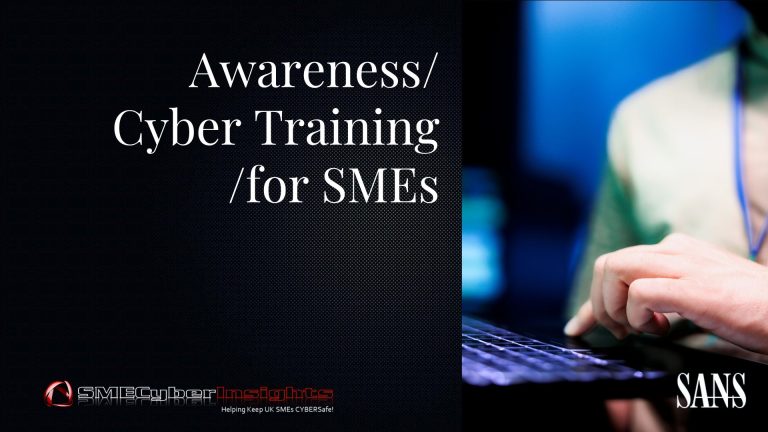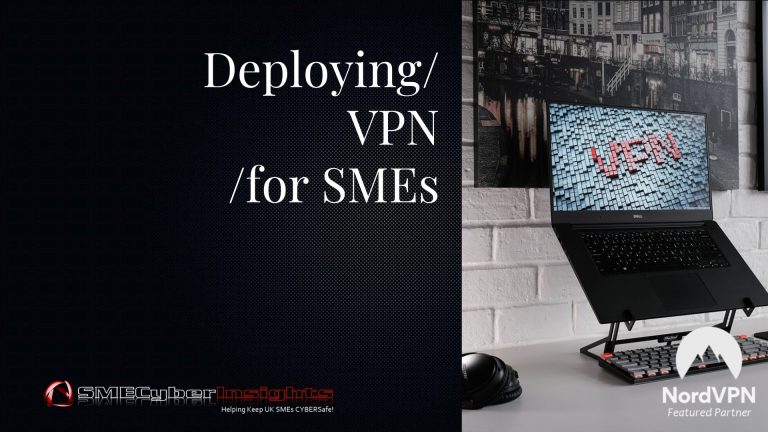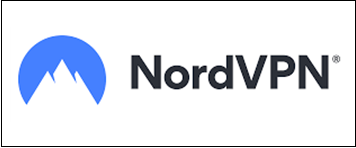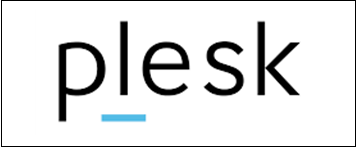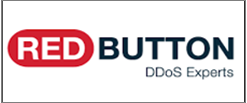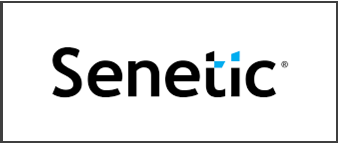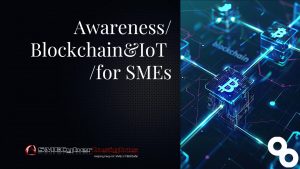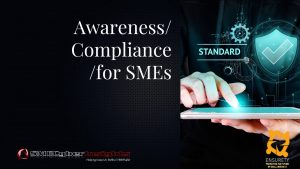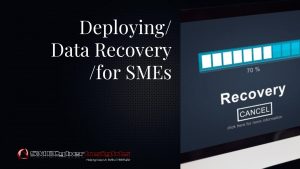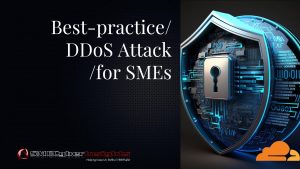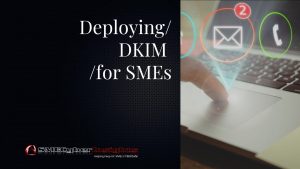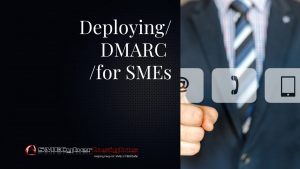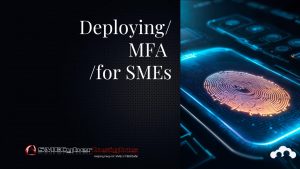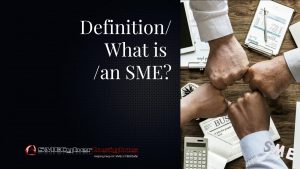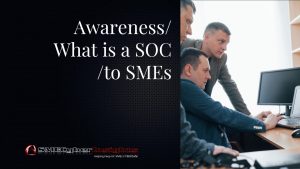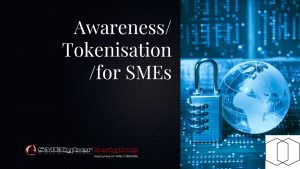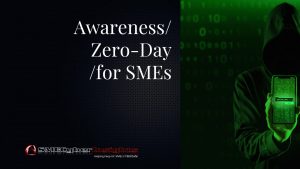BLOCKCHAIN: Blockchain & IoT/KPI: Definition Blockchain & IoT for Small Businesses Blockchain is a decentralized digital ledger that records transactions across multiple computers in such a way that the registered data cannot be altered retroactively. It’s best known as the technology behind Cryptocurrencies like Bitcoin, but its applications extend far beyond that. Blockchain ensures transparency, security, and immutability, making it a powerful tool for various industries. The Internet of Things (IoT) refers to a network of interconnected devices that can collect and exchange data. From smart thermostats and connected refrigerators to industrial sensors and wearables, IoT devices gather and transmit data in real-time, allowing for enhanced automation, monitoring, and data-driven decision-making …
COMPLIANCE: Do you know what your UK Small Business Cyber Compliance obligations are? UK Small Businesses must adhere to a growing number of Cyber Compliance regulations to protect sensitive data and systems. This article will explore key regulations, including the EU CRA, GDPR, NIS2 (and its differences from NIS1), and ISO 27001. We’ll also provide a brief guide for Small Business owners on compliance obligations, how to deploy these regulations, and the potential penalties for non-Compliance. Cyber Compliance refers to the practice of ensuring that a company adheres to relevant laws, standards, and best practices for cybersecurity …
DATA RECOVERY – Best Practices for Data Recovery: A Guide for Small Business Owners For small business owners, preventing data loss is always the best course of action. The companies that invest in the right tools and practices to protect their data are less likely to face the stress and cost of recovery. By putting proactive measures in place, you can spend more time focusing on your business growth and revenue instead of data troubles. If a worst-case scenario does occur, such as an employee accidentally damaging a USB drive or SD card, you can rely on a trusted data recovery firm to quickly retrieve your files and get your business back on track. By following the best practices, you can protect your small business from the risks of data loss …
DDoS – Understanding DDoS Attacks and How to Prevent and Mitigate DDoS Attacks A Distributed Denial of Service (DDoS) attack is an attempt to disrupt the normal traffic of a specific network, server, or online service by overwhelming it with an excessive amount of data. The goal is to flood the target to such an extent that it becomes inaccessible to legitimate users. DDoS attacks leverage a network of compromised devices, known as a botnet, to send massive volumes of requests to a target’s IP (Internet Protocol) address. This malicious traffic can overwhelm the target system’s resources, causing it to crash or become unresponsive. Since these attacks are distributed across many different sources …
What is DKIM – Does my Small Business have to be DKIM compliant? DomainKeys Identified Mail (DKIM) is an email authentication method that allows recipients to verify that an email was indeed sent by the owner of the domain and that its content hasn’t been altered during transit. It achieves this by adding a unique digital signature to each outgoing email, which is linked to the sender’s domain. When the email reaches its destination, the recipient’s email server uses this signature to confirm the email’s authenticity. Emails that are authenticated using DKIM are less likely to be marked as spam, ensuring they reach the intended recipients. DKIM helps prevent malicious actors from sending emails that appear to come from your domain …
EMAIL SECURITY: DMARC Adoption Surges: What It Means for UK Small Businesses DMARC is an email authentication protocol that helps protect domain owners from email spoofing, phishing, and business email compromise (BEC). It builds on existing SPF (Sender Policy Framework) and DKIM (DomainKeys Identified Mail) standards to allow domain owners to specify how their email should be authenticated and how receivers should handle unauthorized emails. When configured correctly, DMARC helps email recipients (such as Gmail, Yahoo, and Outlook) verify whether an email claiming to come from a particular domain is legitimate or fraudulent …
MFA/2FA & Should SME’s Use It? – CyberKPI: Multi-Factor Authentication (MFA) is a security process that necessitates multiple forms of verification to access an account. This method significantly enhances online security, particularly for small and medium-sized enterprises (SMEs) navigating the digital landscape. As cyber threats continue to rise, the importance of MFA becomes increasingly evident, especially considering that the average cost of a data breach globally stands at approximately 4.24 million dollars in data breach costs can significantly impact both finances and reputation. For Small Businesses, which often operate with limited resources, such breaches can lead to devastating financial and reputational damage …
WHAT IS THE DEFINITION OF AN SME IN THE UK AND EUROPE: – CyberKPI: Small and Medium-sized Enterprises (SMEs) are not only the backbone but the lifeblood of the European business landscape, representing a substantial majority of all businesses. SMEs represent 99% of all businesses in the EU. SMEs are considered to be the backbone of Europe’s economy with 25m+ active entities employing 100m+ workers. Small and medium-sized enterprises. In both the UK and EU, the definition of an SME is based on specific criteria involving the number of employees, turnover, and balance sheet totals. The definitions are largely aligned but can vary slightly between regions …
What is a SOC? Why SMEs Are Investing in Security Operations Centres (SOCs) Cyber-attacks are on the rise, and small and medium-sized enterprises (SMEs) are increasingly becoming prime targets. The rise in sophisticated threats has made Security Operations Centres (SOCs) essential for businesses aiming to defend against cyber risks. For SMEs, investing in a SOC is a smart, cost-effective strategy for mitigating cyber risks. Here’s why SMEs are choosing to invest in SOCs: Comprehensive Threat Detection: SOCs identify and mitigate a wide range of cyber threats, from malware to phishing. Early Warning: Receive proactive alerts to help stop cyber-attacks before they cause damage. Real-Time Monitoring…
CYBER KPI: What is Quantum Computing/Tokenisation? Quantum computing’s potential to break current encryption methods poses a unique challenge to tokenization and other security measures. While tokenization doesn’t rely on encryption, it often works in tandem with it. If encryption algorithms are compromised by quantum advancements, the tokenization process could become vulnerable during data transmission or storage. Quantum computing and tokenization are two transformative technologies shaping the future of cybersecurity. For small businesses, understanding and preparing for these innovations is critical to safeguarding sensitive data and maintaining customer trust …
ZERO-DAY: What is a Zero-Day Attack and is my SME at Risk A zero-day attack is a cyberattack that exploits a software vulnerability that is unknown to the software vendor or security teams. Since the flaw is unidentified by the developer, there is “zero days” to fix it before the exploit is used, making these attacks highly dangerous. Hackers use these vulnerabilities to infiltrate systems, steal data, or launch further attacks without the victims knowing. Zero-day attacks are an increasing threat to businesses, including SMEs, across the UK and Europe. While they are difficult to prevent, taking proactive steps like keeping systems updated, investing in modern threat detection tools, and having a solid incident response plan can help mitigate the risk …
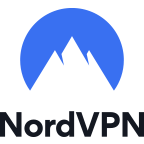
What is a VPN & Does my SME Need one? A VPN is a Virtual Private Network a method of securing your communications credentials. When it comes to Small and Medium-sized enterprises (SMEs), the choice of VPNs can significantly impact the security and efficiency of their operations.
The NordVPN service allows you to connect to 5600+ servers in 60+ countries. It secures your Internet data with military-grade encryption, ensures your web activity remains private and helps bypass geographic content restrictions online. Join NordVPN Today and Save up to 73% and Get 3 months Extra Free – Rude Not to …!
